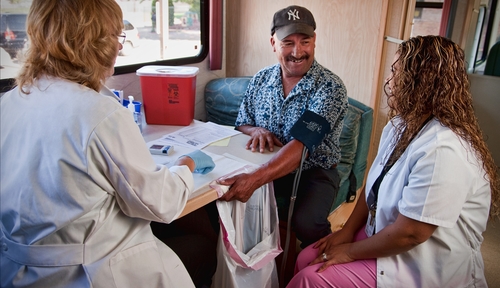The re-election of President Obama puts to rest any uncertainty about the future course of health care reform.
The Patient Protection and Affordable Care Act (ACA) is going to happen, with a number of key steps in its implementation taking place over the next year or so. These and additional steps that will occur later will result in major changes in our health care delivery system that will in turn profoundly impact care providers, patients and hospitals.
There are no special exemptions for academic medical centers and medical schools such as UNMC. Our clinical programs will be expected to compete in this new environment like those in the private sector.
Although there are many remaining details of the ACA that are yet to be defined by the federal and state governments, for UNMC and The Nebraska Medical Center, as well as our other clinical partners, we know that in order to continue to be successful in the new health care environment we must work together to create a more integrated health care delivery system. Terms such as “the hospital” or “the practice” or “the university” are no longer helpful or appropriate, if they ever were.
We need to change the way that we approach our clinical care mission. We cannot remain in our administrative and financial silos anymore and hope to be competitive in the clinical environment of the future, where we all will be asked to provide more and better care at a lower cost. We need to figure out how to avoid duplicative expenses, while continuing to provide the best possible care to our patients. Quality care and successful patient outcomes at the lowest cost will be the barometer of success.
We need to restructure and rethink our delivery system. We must develop a care delivery model that works to ensure and maintain a patient’s health, not just take care of them when they are sick. This means having a coordinated mechanism of providing health maintenance and care on an ongoing ambulatory basis, which transitions seamlessly to the inpatient environment for acute care, and then back to the ambulatory environment for post-acute and long-term care.
Global payment approaches from insurers are being implemented now and will likely be the dominant approach in the future health care market place in which health care providers are made to manage a patient and their problems over the whole spectrum of their needs and will be reimbursed a single amount regardless of the costs experienced by the care system in the process of providing that care. Responsibility and the economic risk for providing efficient and cost-effective evidence-based care will fall disproportionately on the provider.
Even with the above approaches, additional strategies and partnerships with other institutions and care providers will need to be developed to meet the increased expectations and needs associated with the narrow network care delivery insurance products that insurance companies have established and will likely expand in the future. The recent partnership involving The Nebraska Medical Center, UNMC Physicians, and Methodist Hospital and its associated physicians that was selected by Blue Cross as the vehicle for a narrow network insurance product to be offered to single subscribers is demonstration that we can be competitive in such an environment.
Although at first thought, this discussion of health care changes and the ACA may seem to have little to do with those of you involved in the research and education missions of the college. However, it is important to realize that only about 18 percent of our budget comes from the State of Nebraska and 24 percent from external research funding. The remaining portion, 58 percent, comes from the clinical efforts of our faculty.
More importantly, the financial margin (profit) resulting from our clinical efforts is relied upon to cover the expenses of our academic enterprise, which falls short of supporting itself. Last year, in the range of $50 million was transferred from the clinical faculty practice plans to the college to support UNMC programs and staff.
Given the hard times that NIH funding will likely continue to face in view of the federal budget crisis and the low likelihood that the state will be in a position to enhance its support for the college, all of our missions are critically tied to the success of our clinical programs. Thus, successful adaptation to the ACA, will need to involve all of us, regardless of our role at UNMC, to work together to optimize productivity and develop new approaches to limit our expenses.
We’re not alone. Every academic medical center across the country, whether public or private, is facing the same challenges. In many respects we are better prepared for many of these changes than others as we are starting from a solid financial position. But, if we delay that may no longer be the case.
Change is never easy, but successful organizations are the ones who best manage change and reinvent themselves in the context of the new environment. The Affordable Care Act is the future of health care in America. To survive, it will be imperative for UNMC, UNMC Physicians and The Nebraska Medical Center to work together like never before and evolve into a true clinical enterprise. The same holds true for our relationship with Children’s Hospital.
As per the quote attributed to Benjamin Franklin in relationship to support for the Declaration of Independence, “We must, indeed, all hang together, or assuredly we shall all hang separately.”
There is much work to do. Let’s get started.
In closing, I want to extend my best wishes to everyone during this holiday season. You make the medical center great. Thanks for all you do.
